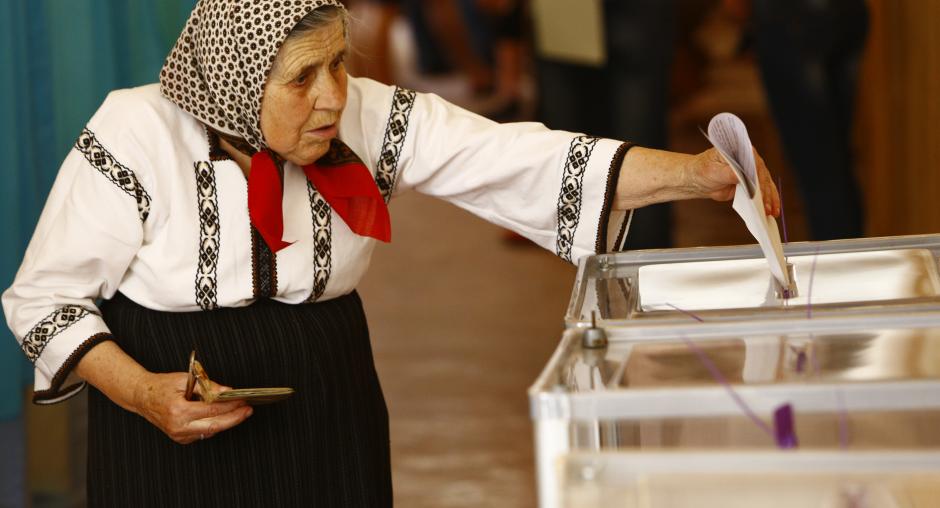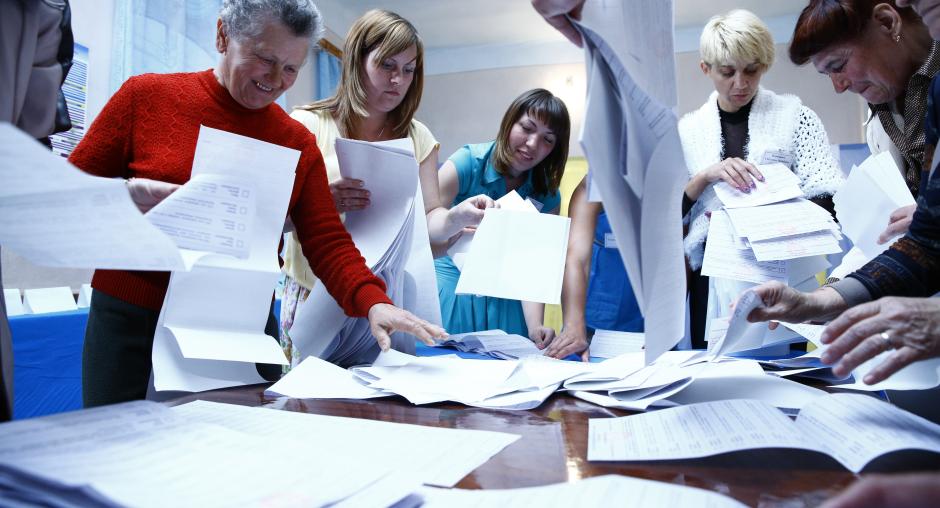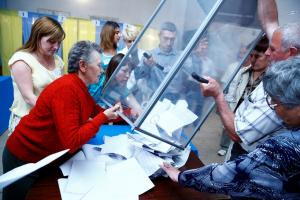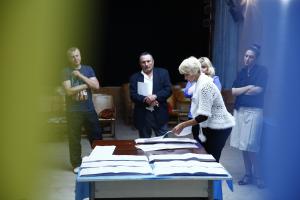Early Presidential Election in Ukraine, 25 May 2014
Type:
Country:
Mission at a glance
- Head of Mission: Tana de Zulueta (Italy)
- 18 core team experts from 12 participating States, based in Kyiv
- 100 long-term observers, deployed throughout the regions
- 900 short-term observers requested from OSCE participating States
Mission schedule
- 20 March: Opening press conference
- 27 March: Arrival of long-term observers
- 28 March: Briefing of long-term observers
- 29 March: Deployment of long-term observers across the country
- 20 May: Arrival of short-term observers
- 21-22 May: Briefing of short-term observers
- 22-23 May: Deployment of short-term observers
- 25 May: Election day
- 26 May: Press conference on preliminary findings and conclusions
- 29 May: Departure of short-term observers
- 3 June: Departure of long-term observers
- 7 June: Departure of the core team
- 15 June: Possible second round
On 28 February 2014, the Ministry of Foreign Affairs of Ukraine invited the OSCE Office for Democratic Institutions and Human Rights (OSCE/ODIHR) to observe the 25 May early presidential election. In accordance with its mandate the OSCE/ODIHR has deployed an Election Observation Mission (EOM) for this election.
The OSCE/ODIHR last observed the parliamentary elections in Ukraine in 2012 and presidential election in 2010. This will be the tenth election observation activity in Ukraine.
ODIHR has also issued a number of joint opinions on current and draft election legislation, together with the Venice Commission of the Council of Europe.
Long-term Observation
The OSCE/ODIHR EOM, headed by Cayetana de Zulueta (Italy), started its work in Ukraine on 19 March. The EOM has a core team of 18 international staff at the head office in Kyiv, drawn from 12 OSCE participating States. One hundred long-term observers are expected to arrive in the country on 27 March and will be deployed in teams of two throughout the regions.
The mission will assess the entire election process in terms of its compliance with OSCE commitments and other international standards for democratic elections, as well as national legislation. Observers will follow campaign activities, the work of the election administration and relevant state bodies, implementation of the legislative framework, and the resolution of election disputes. As part of the observation, the EOM will conduct comprehensive monitoring of the media.
Short-term Observation
ODIHR will request the secondment of 900 short-term observers from OSCE participating States for election day. Short-term observers will be deployed in teams of two throughout the country to monitor the opening of polling stations, voting, the counting of ballots, and the tabulation of results at all levels.
For election day observation, the OSCE/ODIHR will join efforts with a delegation of the OSCE Parliamentary Assembly and other parliamentary partners.
The day after the election, the election observation mission will issue a statement of preliminary findings and conclusions. A final report on the observation of the entire electoral process will be issued approximately eight weeks after the end of the electoral process.
For further information please contact Pietro Tesfamariam, Media Analyst of the Election Observation Mission on +380 67 242 2823 (mobile) or at [email protected] (email) or
Thomas Rymer, OSCE/ODIHR Spokesperson at: +48 609 522 266 (mobile) or[email protected] (e-mail).










